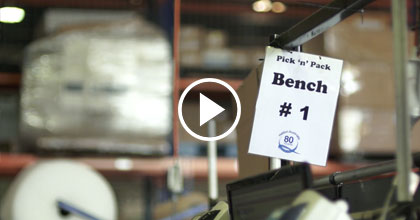Managing operations is tough, whether you are in manufacturing, service, distribution or resources. You are responsible for ensuring that the wheels of the business keep turning, and when they don’t the fingers get very rapidly pointed at you!
Senior leaders in Operations often have the largest proportion of the workforce reporting to them. They need to balance improving performance by ensuring that day to day operations run smoothly. I spent 16 years as an operations manager in manufacturing and learned many hard lessons.
Since starting TXM in 2004 I have worked with dozens of operations leaders across numerous industries. Unfortunately, we see a lot of operational leaders who make life difficult for themselves with some simple mistakes. These can have some very bad consequences for the businesses they work in and for the managers themselves.
Top Five Operations Mistakes Made by Leaders
1. Trying to be Hero
There is a worrying tendency among many operations leaders to want to prove themselves. To these leaders, a result is only worth achieving if it is achieved through their own intellect and personal endeavour. As a result, they fail to get help and often reject help if it is offered. Of course, in some cases, they do succeed, but they often take on too much, set expectations too high and fail. This is particularly the case with a major change project such as restructuring, relocating a factory or warehouse, implementing Lean or implementing a new software system.
As an operations leader, you are responsible for achieving outcomes. Whether you achieve these outcomes “all by yourself” is not important. Often the cost of the resources needed to ensure that change is done well is insignificant compared to the damage that can occur to the business when change is poorly executed. So, next time you feel the urge to “go it alone” on a major change, remember that you are not helping the business, you are just helping your ego. In fact, you may be putting your business (and your career) at unacceptable risk.
2. Managing Down
Operations leaders like to be “hands-on”. It is good to be visible and aware of what is going on, but if you find yourself approving every purchase order, checking every labour roster and dealing with every issue, you are probably managing down. By this, I mean doing the work of the leaders that report to you. This might sound like being helpful, but the result is that you will frustrate and dis-empower your team.
It will also mean that you will be too busy doing everyone else’s job to do your own, meaning that your performance will suffer in the eyes of your manager. Instead, manage by exception. Take care to hire the right people on your team, give them clear accountability, regular feedback and let them do their job.
3. Hiring the Wrong People
The most important decision you will ever make as an operational leader is who you give a job to. Get recruitment right, support those good people you hire or promote, and your job will become a lot easier. Therefore, don’t rush into recruitment. Be very clear on the role you are hiring for and the type of people needed for that role. Don’t rush into taking the wrong person. It is better to advertise again to hire the right person.
When you hire someone, make sure to support them to get started, to understand the role and understand your expectations. Then give them regular (daily if possible) feedback. If you make a mistake and someone does not work out, move quickly, transparently and decisively to move that person on. When you have to terminate an employee that usually involves a failure of your recruitment and management of that person as well as their failure. Therefore, before you go and hire again take a little time to work out what went wrong, so you don’t repeat the mistake.
4. Do as I Say Don’t Do as I Do
As the leader, you set the example. If you are out the front of the workplace every five minutes having a chat and a smoke, don’t expect your team to stay on the job at their workplaces. Swearing and shouting will result in it becoming part of the culture. If you walk around without Personal Protective Equipment, then don’t expect anyone to wear it. I have seen all these things and worse demonstrated by people who call themselves leaders. The most fundamental nature of leadership is that that you lead, others follow. Therefore, if you don’t comply with the standards you set, no one else will – and don’t expect anyone to respect you either.
5. Getting Stuck in the Office
It is very easy to get trapped in your office. There is always one more email to read, one more report to write or one more coffee to drink! However, if you are permanently locked away in your office your staff will see you as uncaring and disconnected. You can also open yourselves up to embarrassing and career-limiting situations when your lack of knowledge of your business is exposed. It is only by getting out in the workplace that you get to see what is really happening in your business and get to “feel the pulse” of your people. Structure regular walks through the workplace every day. Make sure you walk with a member of your team who is responsible for that area. That way your employees get to see that you are supporting your managers. It is also an ideal time to provide that feedback to your team as you walk around.
I could probably go on. If I listed all the mistakes I made as an operations leader, I would probably fill another few pages! However, these are perhaps the most common ones I see, and they are relatively simple to address. Hopefully, they help you build a long and successful operations leadership career!








